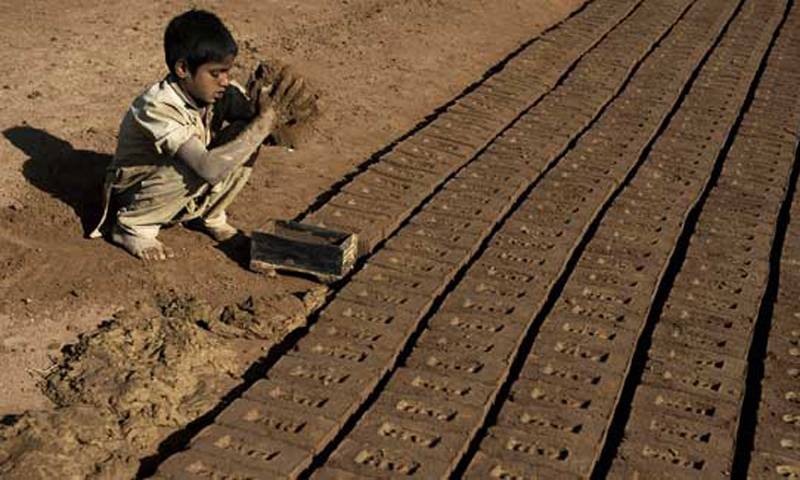The government is proactively playing its role to ensure that the menace of child labour at brick kilns will be eradicated at all costs. However, hundreds of brick kiln owners staged demonstrations in various cities of Punjab to protest against the administration’s drive.
The government is recovering children aged up to 14 years from brick kilns – so far arresting 17 people besides sealing 31 brick kilns for violating child labour laws. The All Punjab Brick Kiln Owners Association however has defended them of only trying to ruin their business.
Pakistan’s society has been condoning child labour for too long; the reactions of brick kiln owners is evidence of this. They do not see anything wrong with hiring children. This mindset must change. Since the passing of the Prohibition of Child Labour at Brick Kilns Ordinance 2016 on January 14, the government has expedited efforts towards elimination of child labour by sealing the kilns and implicating the owners where children are working, and charging them with the non-bailable offence with six months’ imprisonment, a fine of Rs 500,000, or both. The kiln owners are now threatening to continue their strike for indefinite period if their demands are not accepted, but the government must not give in; the demands infringe upon the rights of young children forced to work at the kilns.
Protesting against the government for punishing those for breaking a law does not make sense. Child Labour is illegal under the Employment of Children Act 1991. Whether complicit in the act or simply turning a blind eye to it, one is still guilty; therefore claims of being unaware of child labor that is taking place under their noses have no value. However, there may be some truth in the claim of the ineffectiveness of the government’s methodology, where it needs to be mindful of the peculiar circumstances and the historically engendered attitudes towards education among kiln workers. Is it enough to simply arrest the culprits? The government must also spread awareness about the rights of children to educate people on the threats these children are exposed to at brick kilns. What is needed is a viable plan, one that ensures these children to not go back to the same destitute fate.
The data compiled by the Labor Department sates there are total of 6,090 brick kilns in the Punjab. Some 23,642 children below the ages of 14 work at these kilns. Such miserable statistics makes it clear that this initiative to bring definitive change, rather than simply plucking children from their families and placing them in schools, more innovative solutions are required for long-term integration into education.






